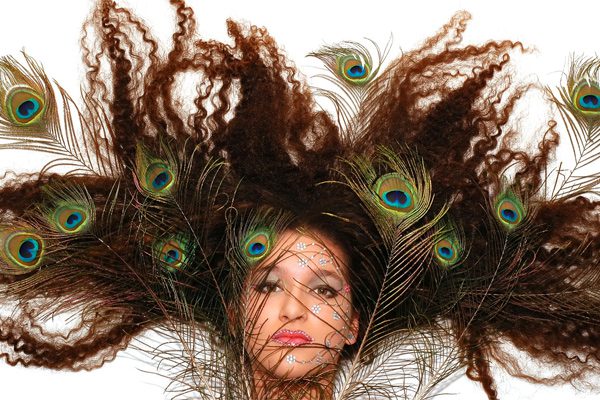Many women and men deal with hair loss. Is there a way to reduce and stop hair loss? Read these tips for healthy hair.
Do you notice your hair thinning? Or how about rapid hair shedding? Hair loss is all too common. Women and men suffer from hair loss for a variety of reasons: medical, lifestyle, or diet-related. No one wants to suffer from hair loss.
More from Glowing Gorgeous: Find out here the Best Silicone-Free Moisturizers And Why Do You Care
What if there was a way to reduce and stop hair loss in its tracks? Luckily, we have a few tips to help you reduce the amount of hair loss and (hopefully) stop hair loss altogether. Let’s go over some of the tips to help you so you can get started right away.
Hair Loss Causes
There are plenty of reasons why you could be losing hair. You could be going through a super stressful period in your life. Maybe the doctor has you on some medications that cause hair loss. Perhaps you’re pregnant, and your hormones are changing. Do know that there are a variety of reasons why you could be suffering from hair loss, and you are not alone. Here some of the reasons why hair loss can be an issue.
Hormones, Age, & Pregnancy
Women who are pregnant or women going through hormonal changes often see hair loss as a result. Women are likely to see thinning of their hair between the ages of 50 to 60 years. Age is right on track with menopause in women. Women who’ve seen their mothers lose hair will most likely experience the same thing for hereditary reasons. Also, women who suffer from Polycystic ovary syndrome (PCOS) are likely to experience hair loss as a result.
Diet & Medications
Make sure you are getting the proper vitamins and nutrients your body needs. Rapid weight loss, high vitamin A, vitamin B deficiency, and not getting enough protein are culprits for hair loss. Those who are anemic should watch out for hair loss as well. Talk to your doctor about any vitamin deficiencies and how to stabilize them. We will go over what the proper diet for reducing hair loss looks like a little bit later on.
Those on certain medications can experience hair loss as a result. Anabolic steroids are also known to impact hair loss. It’s best to consult your doctor or pharmacy to see if your medications could be causing hair loss.
Stress & Other Culprits
Being super stressed-out is not ideal, but neither is losing your hair. Stress is a big issue with those suffering from hair loss. It’s best to work on reducing stress to reduce hair loss in return.
Those who experience female or male pattern baldness can mitigate hair loss by keeping a balanced diet and consulting with a physician. There are also other culprits to hair loss such as chemotherapy, Alopecia Areata, Lupus, hypothyroidism, and compulsively pulling hair out (Trichotillomania, classified as an “impulse control disorder.”)
Tips To Reduce And Stop Hair Loss
Though there is an assortment of ways to reduce and stop hair loss, make sure you speak with your physician before ruling anything out. Here are some tips to reduce and stop hair loss after you’ve ruled any hereditary or health issues out:
-
Diet & Nutrition
Fill your diet with plenty of raw vegetables, herbs, and proteins. Diets such as the Mediterranian Diet are known to help reduce the risk of female or male pattern baldness. Those who are plenty of salad greens and herbs more than a few days a week have seen improvements.
-
Plenty of Protein
Did you know that hair follicles consist of a protein called keratin? If you have a protein deficiency or if your body blocks amino acids, including nuts, eggs, poultry (chicken and turkey), and fish in your diet can increase the amount of protein aka keratin your body produces.
-
Vitamin A
Vitamin A is full of retinoids. Retinoids increase the rate of hair growth. Ensuring that you are getting enough vitamin A, your body will then produce more sebum, which is essential for keeping a healthy scalp. Get more vitamin A by eating plenty of sweet potatoes and sweet peppers, which are rich in the vitamin.
-
Multivitamins
Did you know that vitamins A, B, C, D, iron, selenium, and zinc all help hair growth and retention processes? These vitamins and nutrients specifically help with cell turnover.
-
Biotin
Biotin (vitamin H or B7) is involved with the fatty acid synthesis in the body, essential to your hair lifecycle. Your doctor should tell you if you should be taking three to five milligrams daily.
-
Vitamin D
Vitamin D is also associated with nonscarring alopecia. Most doctors will recommend you taking vitamin D 800 to 1,000 IU daily to stop vitamin D deficiency. Ask your doctor or pharmacist what the best multivitamin is for you so you can reduce the risk of hair loss.
-
Stress Management
Yoga and therapy are both very successful ways to mitigate hair loss, as is frequent massage therapy. If you are losing hair due to stress, these avenues are optimal for relieving stress. An at-home or professional scalp massage can also help stimulate the scalp and hair follicles, creating that healthy hair feeling that goes with reducing stress.
-
Hair Hygiene
Wash your hair regularly to avoid build-up of the scalp. Avoid harsh shampoos. Milder shampoos are much more gentle on the scalp and do the job just right to keep your scalp clean.
-
Massage Treatments
Coconut oil is effective at preventing UV damage to the scalp and protects against styling products. The lauric acid assists in binding protein to hair, which then protects hair from breakage. Coconut oil is also helpful in massaging into the scalp, helping blood flow and your hair grow. Olive oil is also useful at conditioning the hair and preventing dryness and breakage.
-
Hair Styling
When styling your hair, avoid tight up-dos, ponytails, and braids. Tight hair-dos lead to damage and breakage of hair. Also, avoid heat stylers like hair dryers and curling irons to prevent the weakening and breakage of your hair. Letting your hair go natural will encourage natural hair growth and keep it healthier. Avoid coloring your hair, which dyes contain ammonia and other chemicals that can lead to hair damage and breakage.
Consult with your doctor to rule out any medical issues before starting your hair regimen. Maintain a healthy diet, get proper nutrients, practice stress management, and treat your hair correctly to reduce and stop hair loss. Reducing and stopping hair loss starts with you.
This article was taken from Cherie, credit to user @Juliet_Wilcox
More from Glowing Gorgeous: Find out here Hyram’s Recommended Face Sunscreens For The Summer



Comments